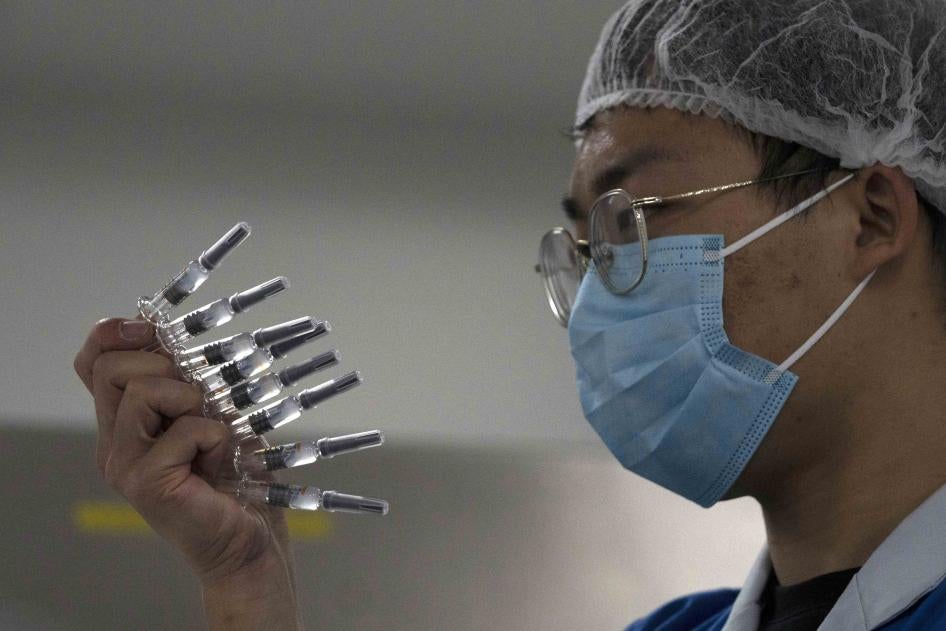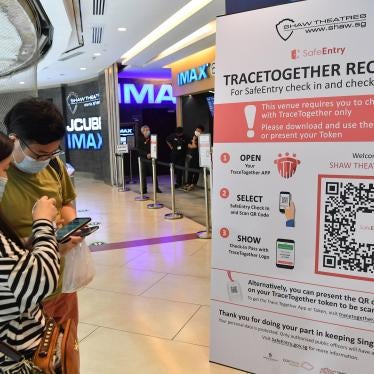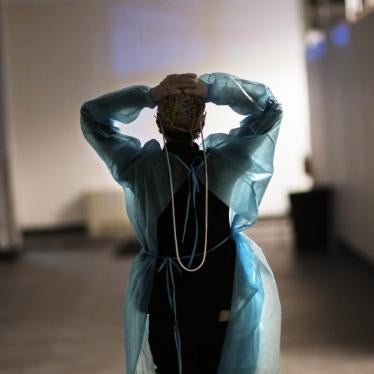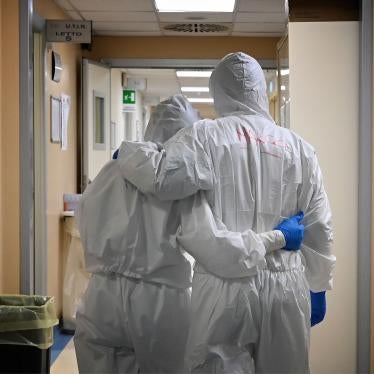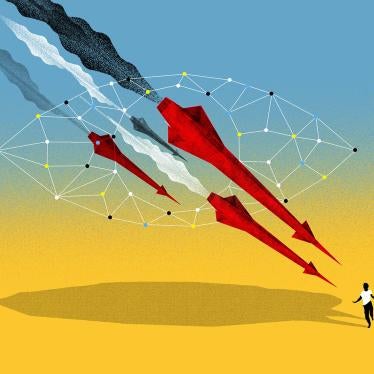One year after the Covid-19 virus was first identified in Wuhan, China has gone from being the world’s epicenter of the pandemic to one of the countries with the lowest reported infection rates. But alongside this transformation is the Chinese government’s lack of transparency, and its reliance on censorship and propaganda.
The pandemic started with Beijing withholding information from the public, underreporting cases of infection, downplaying the severity of the infection, and dismissing the likelihood of person-to-person spread. Now, the authorities have moved to detain vaccine safety advocates, censor information critical of the Chinese-made vaccines, and spread disinformation about non-Chinese vaccines.
Beijing’s Covid-19 vaccine funding and development process has been shrouded in opacity. While other governments, notably the US and the European Commission, have begun publishing redacted copies of the contracts they have signed with vaccine producers, Chinese authorities have yet to take this step.
More than a dozen Covid-19 vaccines developed in China are in clinical trials, with about half of them in phase 3 trials, which are large-scale studies to assess the vaccine’s level of protection. At the time of writing, only one Chinese vaccine has received emergency approval from what WHO identifies as a “stringent” regulatory authority. None of the vaccines have received full regulatory approval or released phase 3 trial data. Despite this, widespread vaccinations are being administered to the Chinese public as part of a national emergency-use protocol.
As early as July 2020, Chinese authorities began to vaccinate people in “high risk” professions, including medical professionals and border workers. Some state-owned companies required their overseas-based Chinese workers to be vaccinated before they returned to their jobs abroad. Some workers expressed concerns over the lack of transparency and dearth of safety and efficacy data before the vaccine’s official approval.
In recent years, recurring vaccine scandals in the country and the authorities' persistent failure to properly regulate the vaccine market have greatly frustrated the public. Some families of victims of faulty vaccines have for years demanded accountability and have been met with police harassment, intimidation, and even imprisonment.
In October, the authorities in Henan province forcibly disappeared He Fangmei, an outspoken critic of Chinese vaccine companies following her daughter’s diagnosis with a neurological disease after she received vaccinations. He, who was pregnant at the time of her disappearance, has not been heard from since. In January, shortly before WHO experts arrived in China to investigate the origin of Covid-19, Shanghai authorities also forcibly disappeared Hua Xiuzhen, a vaccine safety advocate whose adult daughter developed a neurological disorder after receiving a rabies vaccine in 2014.
In 2018, a court in Henan province sentenced vaccine safety activist Zhang Da’e to two years in prison for “picking quarrels and provoking trouble.” After being given a vaccine at the local government-run epidemic prevention center in Henan province, Zhang’s granddaughter was diagnosed with a brain injury and other illnesses. Though Human Rights Watch is unable to verify the causes of these illnesses, the families all believe they are a result of faulty vaccines.
While there have not been publicly known cases of recipients of the Chinese Covid-19 vaccines suffering severe side effects, the authorities censored online posts raising questions about the safety of the vaccines. A person whose article on WeChat raising such questions was removed lamented on Twitter: “When writing it, I was doing my best to be deliberately vague…in order to pass the censors… As the vaccines began to be rolled out in recent days, [I] clearly felt the atmosphere becoming much more tense.”
As wealthy nations have reserved most of the Western-developed vaccine doses expected to be produced this year, China has offered to fill the demand from developing countries desperate to halt the pandemic. Two major biotech companies, the state-owned Sinopharm and privately owned Sinovac, have sold abroad or received international orders for more than 800 million doses.
At the same time that President Xi Jinping urged nations to “come together against global challenges” and “international cooperation on Covid vaccines,” however, Beijing has mounted an aggressive disinformation campaign inside and outside of the country to sow doubt about Western-made coronavirus vaccines.
Major state media outlets including Xinhua, People’s Daily, and China Daily churned out articles about the deaths of elderly Pfizer vaccine recipients in Norway and accused Western media of downplaying the deaths, even though multiple outlets have reported on them and Norwegian authorities explained that there was no evidence linking the deaths to the vaccine.
Liu Xin, a prominent Chinese state media anchor, shared an unverified report of 10 deaths in Germany, allegedly a result of receiving the Pfizer vaccine. Liu’s tweet was shared by Zhao Lijian, a spokesperson for the Chinese foreign ministry and one of the loudest nationalistic voices on Twitter, which remains banned inside China.
A new report by the social media research firm Graphika also uncovered a massive, clandestine, and increasingly sophisticated pro-Beijing digital disinformation network that has been spreading vaccine propaganda on YouTube, Twitter, and Facebook. While it is difficult to attribute the network to a particular government since the platforms allow a degree of anonymity, the campaign’s timing and messaging have been closely aligned with that of Chinese state media.
Beijing is playing a dangerous game. To scare people off from taking vaccines – by not disclosing data on the safety of its new vaccines and discrediting others’ vaccines – is only going to prolong the pandemic. This is something that no one, least of all Chinese authorities, should want.
